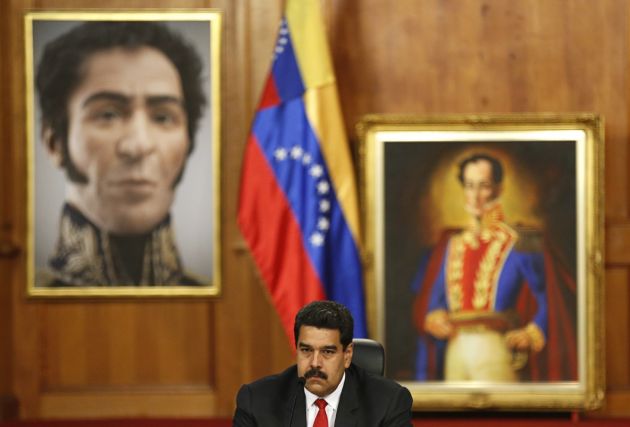Pope Francis says United Nations must help in Venezuela crisis

Pope Francis has spoken on the political and human rights crisis that is still devastating in Venezuela, saying that the United Nations needs to be involved in reaching a solution.
Francis spoke to journalist aboard his overnight flight from Colombia to Rome on Sept. 10 after his trip to the South American country and touched on Venezuela, Catholic News Agency reported.
"It seems that it's a very hard thing, and the most painful is the humanitarian problem, the many people who escape or suffer...we must help to resolve it in any way (possible). I think the U.N. must also make itself felt there to help," the Pope said after the Sept. 6 to 10 visit.
Francis, his eye bandaged and blackened after an accident in the popemobile, wrapped up his trip to Colombia on appealing to the country to "untie the knots of violence" after a 50-year civil war, Reuters reported.
"I think that the Holy See has spoken strongly and clearly," he said on the plane, also mentioning the many times he has spoken about the situation in Venezuela during his Angelus addresses.
The pontiff was asked about President Nicolás Maduro's inconsistent rhetoric, in particular his claim to be "with" Pope Francis, while at the same time speaking out violently against the country's bishops.
"What President Maduro says, he can explain. I don't know what he has in his mind," Francis said,
On Sept. 11 the UN human rights chief said in a speech that Venezuelan security forces may have committed crimes against humanity against protesters and called for an international investigation.
"There is a very real danger that tensions will further escalate, with the Government crushing democratic institutions and critical voices," said Zeid.
However, Venezuelan Foreign Minister Jorge Arreaza said at the same meeting as Zeid, that protesters used firearms and home-made weapons against security forces, but said, "Our country is now at peace."
FOUR EX-PRESIDENTS
In his on flight conversation the Pope mentioned the extensive work of the Holy See to promote dialogue in the country, including the agreement to send a group of four ex-presidents as facilitators in a meeting between the Venezuelan government and the opposition Oct. 30, 2016.
The group was made up of former Colombian president Ernesto Samper Pizano, the secretary general of UNASUR (the Union of South American Nations); José Luis Rodríguez Zapatero of Spain; Martín Torrijos of Panama; and Leonel Fernández of the Dominican Republic.
The Vatican also sent Archbishop Claudio Maria Celli to participate as a nuncio of the Holy See.
Francis said that after "speaking with the people," the Holy See has also spoken to Venezuela in a private manner, possibly referring to a private meeting that occurred between him and President Maduro at the Vatican last October.
Venezuela continues to face escalating protests and violence, as President Nicolás Maduro has suppressed opposition and democracy activists, and moved to seize legislative power in the country.
The United Sates and several other nations have dismissed as illegitimate the results of a July 30 election convened by Maduro.